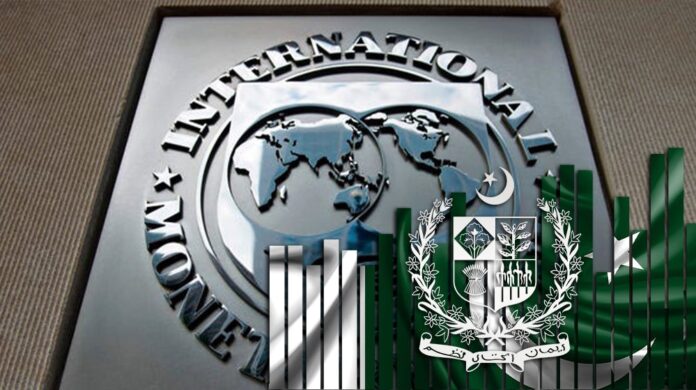The International Monetary Fund (IMF) has mandated the abolition of Pakistan’s Pakistan Sovereign Wealth Fund (PSWF) as a prerequisite for finalizing a new bailout package. This move aims to enhance transparency and accountability in the management of seven profitable state-owned enterprises (SOEs). Under the Pakistan Sovereign Wealth Fund Act 2023, these enterprises’ ownership and assets were transferred to the PSWF, triggering contentious negotiations with the IMF, according to government sources.
IMF’s insistence on scrapping the Fund includes a firm deadline of September 30th to repeal the relevant legislation. Despite recent talks between IMF Mission Chief Nathan Porter and Pakistani finance ministry officials, no agreement has been reached, with the IMF holding steadfast to its demand. Government authorities are requesting additional time to formulate a response, though indications suggest they may have to comply to secure the IMF’s financial support, intended to bring clarity to the affairs of the seven companies.
Established by the previous government, the PSWF Act aimed to consolidate shares from entities like OGDCL, Pakistan Petroleum Limited, and others, with the intention of raising funds through international sales. These entities collectively earned Rs386 billion in net profit in fiscal year 2022-23, with OGDCL alone generating Rs225 billion, underscoring their strategic importance. However, the IMF argues that Pakistan lacks the capital and should instead enhance its privatization laws to ensure fair processes and retain control over critical assets.
The ongoing stalemate has delayed finalizing the IMF agreement, despite economic challenges exacerbated by Pakistan’s 2024-25 budget. Finance Minister Muhammad Aurangzeb has refrained from setting a definitive timeline for concluding negotiations.
Prime Minister Shehbaz Sharif’s recent approval of a Rs50 billion cut in the development budget and postponement of electricity rate hikes awaits IMF approval. The Fund’s scrutiny of the PSWF’s exemption from key laws, including those governing privatization and state-owned enterprises, remains a point of contention. Finance ministry officials argue for maintaining partial control through board representation even after potential Gulf investments, opposing the IMF’s stance.
The Abu Dhabi Investment Authority (ADIA) assisted in drafting the PSWF legislation, envisioning Pakistan’s control over the Fund through initial capital contributions. Yet, operationalization of the Fund awaits, potentially sacrificing a significant revenue source if company profits are transferred.
Interest from the United Arab Emirates in acquiring shares of Pakistan’s oil and gas sector suggests potential divestment opportunities. Funds raised were earmarked for joint ventures in agriculture, mining, and technology sectors, reflecting broader economic strategies amid IMF negotiations.




